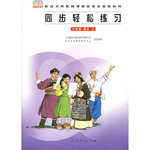题目内容
During her childhood Susan read a lot about Chinese history, from which she _________ greatly in her work in China now.
| A.observes | B.recovers | C.recognises | D.benefits |
D
解析试题分析:A.observes 观察 B.recovers恢复 C.recognises 承认 D.benefits受益;句意:在苏珊的童年时,她读了很多关于中国的历史,她现在在中国工作使她受益极大。故选D
考点:动词辨析
点评:词义辨析考的是学生的基础词汇知识,了解每个选项的含义是做好此类题型的关键,解答此类习题,首先要求学生有一定的词汇量,句意理解后便可作答,所以平时的基础知识记忆,词汇积累是解答好这种题的关键,同时也要结合成分分析的方法来区分所填动词的形式,是谓语动词还是非谓语动词。

 同步轻松练习系列答案
同步轻松练习系列答案 课课通课程标准思维方法与能力训练系列答案
课课通课程标准思维方法与能力训练系列答案
I’ve loved my mother’s desk since I was just tall enough to see above the top of it as mother sat doing letters. Standing by her chair, looking at the ink bottle, pen, and white paper, I decided that the act of 1 must be the most 2 thing in the world.
Years later, during her final illness, mother 3 different things for my sister and brother. “But the 4 ”, she said, “is for Elizabeth”.
I never saw her angry, and never saw her cry. I knew she 5 me, she showed it in action. But 6 a young girl, I wanted heart-to-heart talks 7 mother and daughter. They never happened. And a gulf (深渊) opened between us. I was “too emotional”. 8 she lived “on the surface”.
As years passed and I graduated from college, I loved my mother and I wrote to her in 9 words and asked her to let me know in any way she chose that she did 10 me.
I posted the letter and waited for her answer. 11 came. My hope turned to 12 , then little interest, finally, peace --- it seemed that nothing happened. I couldn’t be sure that the 13 had even got to Mother. I only knew that I had written it, and I could 14 trying to make her into someone she was not.
Now the 15 of her desk told me, as she’d 16 been able to, that she was 17 that writing was my chosen work. I 18 the desk carefully and found some papers 19 --- a photo of my father and a one-page letter, folded and refolded many times.
“Give me an answer”, my letter asks, “in any way you chose”. Mother, you always chose the 20 that speaks louder than words.
| 【小题1】 |
|
| 【小题2】 |
|
| 【小题3】 |
|
| 【小题4】 |
|
| 【小题5】 |
|
| 【小题6】 |
|
| 【小题7】 |
|
| 【小题8】 |
|
| 【小题9】 |
|
| 【小题10】 |
|
| 【小题11】 |
|
| 【小题12】 |
|
| 【小题13】 |
|
| 【小题14】 |
|
| 【小题15】 |
|
| 【小题16】 |
|
| 【小题17】 |
|
| 【小题18】 |
|
| 【小题19】 |
|
| 【小题20】 |
|